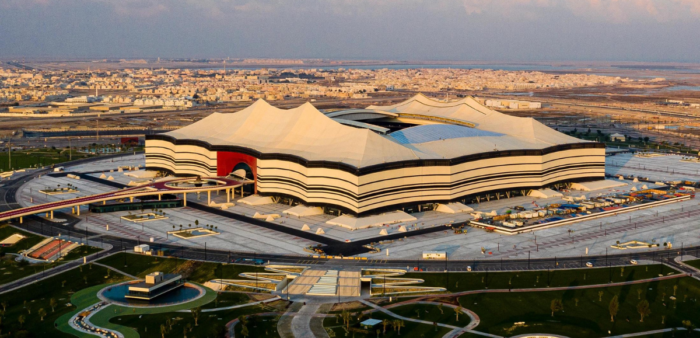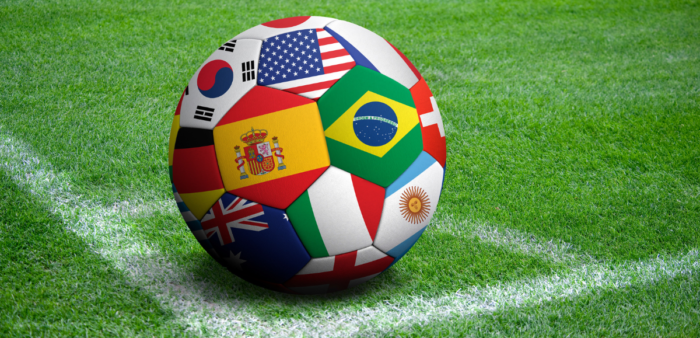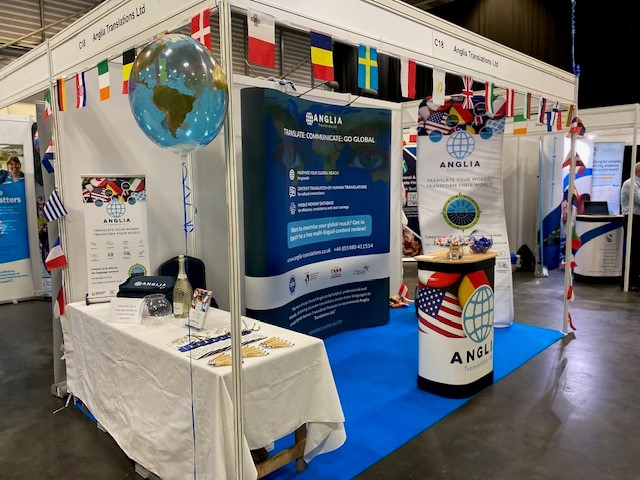Your Guide to the 2022 World Cup in Qatar
The 2022 World Cup in Qatar starts this weekend with the opening fixture between hosts Qatar and Ecuador, concluding with the final on Sunday December 18th.
This year’s tournament is the first time a Middle Eastern country has hosted the event in its 92-year history, and the first to be held in the Winter. The world cup is expected to attract more than 5bn viewers from around the world, surpassing the record set for the World Cup in Russia in 2018 (3.5bn).
One of the most interesting aspects of such a globally recognised event is the truly international mixture of cultures, nationalities and languages. This year, there will be 23 different official languages represented at the finals, all of which are used by players, fans, commentators and officials.
In this blog, we’ll be exploring what you can expect from the World Cup and the various languages and cultures to be aware of.
Background
While all thirty-two nations will harbour some notion of winning the tournament, the bookmakers favourites are as follows:
- Brazil
- Argentina
- France
- England
- Spain
Brazil is the most decorated nation in the tournament’s history, winning five world cups; the most recent being in 2002. England reached the semi-finals of the World Cup in Russia four years ago, and the finals of UEFA Euro 2020 (held in 2021) where they lost on penalties. France are the current holders beating Croatia in the final in Russia, while Argentina will hope to ride the wave of Lionel Messi’s World Cup swansong.
The opening ceremony will begin on Sunday 20th November at 2pm, before the first game kicks off between hosts Qatar and Ecuador at 4pm.
The tournament will continue through the group stages where every team will play at least three matches, before the knockout stages begin with the final 16 beginning on December 3rd.
The closing ceremony and final will be played in Lusail on Sunday, December 18th.
Where Will the World Cup 2022 Games Be Played?

All 64 games will be played in the capital city of Doha, and the surrounding cities of Lusail, Al Rayyan, Al Khor and Al Wakrah.
All of the stadiums have been purpose built for the World Cup in the past two years, with the exception of the Khalifa International Stadium in Doha, which was constructed in 1976.
Which Nations Have Qualified for the Qatar World Cup?
There are 32 teams competing at this year’s World Cup representing:
- Africa.
- Asia.
- Europe.
- North America, Central America & Caribbean.
- Oceania.
- South America.
These nations were separated out into eight groups:
- Group A: Qatar, Ecuador, Senegal, Netherlands.
- Group B: England, Iran, United States, Wales.
- Group C: Argentina, Saudi Arabia, Mexico, Poland.
- Group D: France, Australia, Denmark, Tunisia.
- Group E: Spain, Costa Rica, Germany, Japan.
- Group F: Belgium, Canada, Morocco, Croatia.
- Group G: Brazil, Serbia, Switzerland, Cameroon.
- Group H: Portugal, Ghana, Uruguay, South Korea.
What are the Official Languages of the 2022 World Cup?

Arabic is the official language of Qatar, and most Qataris speak a Gulf Arabic dialect as seen across all the Gulf States. English is also a common language, as is Persian and Urdu – although the latter two aren’t considered as official Qatar languages.
Of the 23 official languages represented at the tournament, just seven of these are spoken in multiple countries.
English is the most commonly shared language, and is listed as an official language of nine nations represented at the World Cup. English is universally understood in almost every competing country too.
French is the next most commonly shared language, followed by Spanish, Arabic, German, Dutch and Portuguese:
- English: 9
- French: 7
- Spanish: 6
- Arabic: 4
- German: 3
- Dutch: 2
- Portuguese: 2
Which Are the Least Common Languages of World Cup 2022?
While there are plenty of languages spoken in multiple nations, there’s many more that are considered official to only a single country. In fact, there are 16 official languages official to just one country in the tournament, which are:
- Azerbaijani.
- Welsh.
- Faroese.
- Greenlandic.
- Berber.
- Croatian.
- Serbian.
- Romansh.
- Korean.
- Amerindian.
- West Frisian.
- Limburgish.
- Persian.
Some of these are even considered regional languages, which means they are generally only spoken within a specific region, these are:
- Amerindian.
- West Frisian.
- Welsh.
- Limburgish.
- Greenlandic.
- Berber.
- Romash.
Official Languages For Each World Cup Nation

Every country in the world has recognised official languages, which are spoken by most of the population.
These languages don’t recognise regional dialects, for example the Cornish dialect, but widely encompass the base language of these dialects.
- Qatar – Arabic, English
- Ecuador – Spanish, Amerindian
- Senegal – French
- Netherlands – Dutch, West Frisian, Limburgish
- England – English
- Iran – Persian, Azerbaijani
- USA – English
- Wales – English, Welsh
- Argentina – Spanish
- Saudi Arabia – Arabic
- Mexico – Spanish
- Poland – Polish
- France – French
- Australia – English
- Denmark – Danish, Faroese, Greenlandic
- Tunisia – Arabic, French
- Spain – Spanish
- Costa Rica – Spanish
- Germany – German
- Japan – Japanese, English
- Belgium – Dutch, French, German
- Canada – English, French
- Morocco – Arabic, Berber
- Croatia – Croatian
- Brazil – Portuguese
- Serbia – Serbian
- Switzerland – German, French, Italian, Romansh
- Cameroon – English, French
- Portugal – Portuguese
- Ghana – English
- Uruguay – Spanish
- Korea Republic – Korean
Switzerland has the most official languages at the World Cup with four: German, French, Italian and Romansh.
In fact, Switzerland is fifth on the list of countries with the most official languages in the world behind only Rwanda (4), South Africa (11), Zimbabwe (16) and Bolivia, which has gone into the Guinness World Records as the country with the most verified official languages with a whopping 37!
If you’d like to find out more about anything in this blog, or if you’re interested in any of our services, why not contact us today to see how we can help you?



